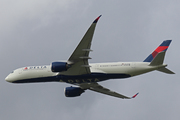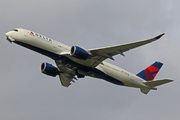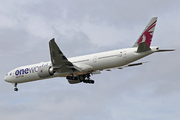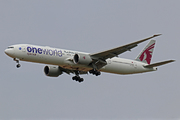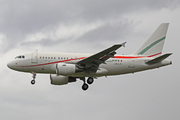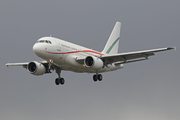Dépêches
Four Million Britons Give up Flying Dueto Airport Stress
Dépèche transmise le 28 juin 2011 par PRNewswire
YORK, England, June 28, 2011 /PRNewswire/ --
Bad airport experiences have led close to four million[1]travellers to give up flying altogether, with more than a third of Britons who have flown now claiming the airport experience is more stressful than the working week.
According to new findings from life assistance company CPP, despite taking a flight to pave the way for rest and relaxation, four in ten (42%) people say airports make them feel stressed and close to a quarter (23%)[2] find the prospect of getting on to their flight as stress inducing if not more stressful than moving house. The problem has become so rife that one in ten (9%) of us are now avoiding flying altogether as a result.
The most nerve-wracking parts of the airport experience include flight delays, mislaying belongings and getting to the gate on time - all of which mean close to half of travellers find it difficult to relax until they're safely on the plane and a similar number (45%) believe the holiday doesn't start until they've left the airport.
But it's no wonder that Britons are so worried about making it to the gate on time - over 2.9 million[3] travellers have missed a flight in the past, while one in five of us (20%) have had to run to the gate with minutes to spare.
The problem is exacerbated on the other side of the border, with four in ten (41%) holidaymakers struggling to find their way around foreign airports as a result of the language barrier. The evolution of flight charges, which now sees many airlines charging for checked in baggage, also has a negative impact on stress levels, as do more recently implemented security measures such as liquids not being accepted in traveller's hand luggage.
Studies have shown that the airport experience is having significant physiological effects on a traveller's anxiety levels - one previous experiment using Heathrow airport saw holidaymakers' heart-rates rise to a level equivalent to doing intense exercise[4]. This was echoed in the CPP research, which revealed that holidaymakers who had visited more than one airport cited Heathrow as the most stressful, followed by Gatwick and Manchester.
Recent disruptions in airport services as a result of bad weather over the winter and Icelandic ash clouds over the summer also mean that flight delays and cancellations have become more common. Last summer saw one of the highest levels on record with charter flights operating on average 29 minutes late[5].
In fact airports are inherently stressful places, according to Psychologist David Moxon, who says that a number of factors combine to make airports uniquely challenging to the human psyche. Moxon comments, "Humans are wired to experience stress in situations where many feel out of control - and airports, where you have to follow instructions that are likely change at the last minute, and procedures that are unpredictable, lead many to react with a stress response. There is also what is known as an accumulation effect, resulting from other anxieties that we may be harbouring. If you head to the airport having worried about waking up on time, or what you've left behind at work, the airport itself will seem more stressful as a result."
It's not all bad news however as holidaymakers have come up with some ways that the airport could be made a more pleasant experience - popular improvements include less queuing, and cheaper and nicer food and more seats. A large proportion (40%) of travellers say a quiet environment or access to a lounge (35%) would help to reduce their stress levels while close to half (42%) would like to be treated as a first class passenger.
Joanne Gibbons, from CPP says,
"It's a real shame that holidaymakers are experiencing such high levels of stress during what should be the beginning of a period of rest and relaxation. But rather than turning away from airports altogether we'd urge families to have a strategy for staying calm prior to boarding - by checking in online, minimising the amount of luggage they check-in and taking advantage of airport lounge opportunities."
CPP's tips for avoiding airport stress
1. Choose your airport carefully. Bigger airports tend to be busier which can mean higher stress levels. So consider flying to a smaller, local airport to reduce transfer times and hassle.
2. Do as much as you can online beforehand. Many airlines now allow travellers to check in online up to forty eight hours beforehand, which can really reduce the amount of time spent queuing when you arrive at the airport. If you do choose this option, remember to print off your boarding pass.
3. Minimise parking time. Airport car-parks are huge and navigating them can be tricky, so consider dropping off all your passengers at check in and having one person park the car to avoid unnecessary stress.
4. Check in minimal luggage. With airlines increasingly charging for checked-in luggage, you can avoid queues and save cash by taking carry-on luggage where possible, especially for short breaks. This means you can go straight through to security and save time on the other side.
5. Opt for fast-track security. Some larger airports now allow passengers to pay for the opportunity to fast-track through the security gates. This can speed up the airport process and give you more time relaxing on the other side.
6. Take advantage of airport lounges. Airport lounges are a great way to relax and get that holiday feeling before boarding the plane - you'll be guaranteed a seat and get complimentary snacks. CPP's Airport Angel AirText service will even text you when your flight is boarding to ensure you get there on time.
7. Have a boarding strategy. If you have pre-booked seats it may be worth boarding last, meaning you can spend longer in the lounge and less time queuing at the gate. If you haven't got pre-booked seats, think about getting priority boarding or leaving a little more time at gate to get to the front of the queue.
Research Methodology
ICM interviewed a random sample of 2005 adults aged 18+ online between 6-8 May 2011. Surveys were conducted across the country and the results have been weighted to the profile of all adults. ICM is a member of the British Polling Council and abides by its rules. Further information at http://www.icmresearch.co.uk
1. According to research conducted for CPP by ICM, 9% agreed with the statement "I don't fly because I dislike the airport experience". The total adult (18+) population in Great Britain that has been through an airport is 43,678,000. 9% of these equates to 3,979,000 people or close to four million.
2. According to the ICM research, 8% of Brits who have been through an airport find being in an airport more stressful than moving house and 15% find it at least as stressful as moving house. Therefore a total of 23% find the airport as stressful if not more stressful than moving house.
3. According to the ICM research, 7% of Brits who have been through an airport have missed a flight in the past, this equates to 2.9 million people
4. According to a study conducted by Chartered Psychologist Dr David Lewis in 2007. Four passengers travelling through Heathrow had chest monitors fitted to record increases in heart rate, pressure pads attached to their arms to monitor changes in blood pressure and sensors were attached to their finger-tips to measure changes in physiological stress. Dr Lewis' experiment showed passenger heart rates peaked at four times their resting levels and physiological stress levels exceeded those recorded amongst Formula 1 racing drivers or free-fall parachutists.
5. According to data sourced from flightontime.info and collated by the Civil Aviation Authority, available at http://www.flightontime.info/summer2010/index.html charter flights were delayed by an average of 29 minutes in summer 2010.
Corporate Background Information
The CPPGroup Plc
The CPPGroup Plc (CPP) is an international marketing services business offering bespoke customer management solutions to multi-sector business partners designed to enhance their customer revenue, engagement and loyalty, whilst at the same time reducing cost to deliver improved profitability.
This is underpinned by the delivery of a portfolio of complementary Life Assistance products, designed to help our mutual customers cope with the anxieties associated with the challenges and opportunities of everyday life.
Whether our customers have lost their wallets, been a victim of identity fraud or looking for lifestyle perks, CPP can help remove the hassle from their lives leaving them free to enjoy life. Globally, our Life Assistance products and services are designed to simplify the complexities of everyday living whether these affect personal finances, home, travel, personal data or future plans. When it really matters, Life Assistance enables people to live life and worry less.
Established in 1980, CPP has 11 million customers and more than 200 business partners across Europe, North America and Asia and employs 2,300 employees who handle millions of sales and service conversations each year.
In 2010, Group revenue was GBP325.8 million, an increase of more than 12 per cent over the previous year.
In March 2010, CPP debuted on the London Stock Exchange (LSE).
What We Do: CPP provides a range of assistance products and services that allow our business partners to forge closer relationships with their customers.
We have a solution for many eventualities, including:
- Insuring our customers' mobile phones against loss, theft and damage - Providing assistance to cancel and reorder customer's payment cards should these be lost or stolen - Providing assistance and protection if a customer's keys are lost or stolen - Providing advice, and assistance to help customers in the event their identity is fraudulently used - Assisting customers with their travel needs be it an emergency (for example lost passport), or basic translation service - Monitoring the credit status of our customers - Provision of packaged services to business partners' customers
CPP is an award winning organisation:
- Finalist in the Plc Awards, New Company of the Year, 2011 - Winner in the European Contact Centre Awards, Large Team of the Year category, 2010 - Finalist in the European Contact Centre Awards, Best Centre for Customer Service, Large Contact Centre of the Year categories, 2010 - Finalist in the National Sales Awards, Contact Centre Sales Team of the Year category, 2010 - Finalist in the National Insurance Fraud Awards, Counter Fraud Initiative of the Year category, 2009 - Finalist in the European Contact Centre Awards, Large Team and Advisor of the Year categories, 2009 - Named in the Sunday Times 2008 PricewaterhouseCoopers Profit Track 100 - Finalists in the National Business Awards, 3i Growth Strategy category, 2008 - Finalist in the National Business Awards, Business of the Year category, 2007, 2009 and Highly Commended in 2008 - Named in the Sunday Times 2006, 2007, 2008 and 2009 HSBC Top Track 250 companies - Regional winner of the National Training Awards, 2007 - Winner of the BITC Health, Work and Well-Being Award, 2007 - Highly Commended in the UK National Customer Service Awards, 2006 - Winner of the Tamworth Community Involvement Award, 2006. Finalist in 2008 - Highly Commended in The Press Best Link Between Business and Education, 2005 and 2006. Winner in 2007 - Finalist in the National Business Awards, Innovation category, 2005
For more information on CPP click on http://www.cppgroupplc.com
CONTACT: For more information or to arrange a time for interview withCPP's travel expert Joanne Gibbons or Psychologist David Moxon, pleasecall: Bryony Partridge, +44(0)203-451-9406, +44(0)7846-004-416; LauraBuchan, +44(0)203-451-9428, +44(0)7738-443-404
- 22/04 Finnair a dévoilé son programme de vol pour les saisons hiver 2024 et été 2025
- 22/04 Qatar Airways annonce le lancement de vols à destination de Kinshasa
- 22/04 Vietnam Airlines et CAE prolongent leur accord
- 22/04 Mermoz Academy de Tours commande des Tecnam P-Mentor
- 22/04 Transavia France reçoit son 2e Airbus A320neo
- 20/04 Friedrichshafen 2024 : Blackwing présente un nouveau modèle de son BW650RG
- 20/04 Friedrichshafen 2024 : JMB Aircraft présente son Phoenix
- 19/04 Friedrichshafen 2024 : le projet "Fly To The North"
- 19/04 Friedrichshafen 2024 : Aura Aero présente pour la première fois ses trois appareils
- 19/04 Friedrichshafen 2024 : Duc Hélices présente son hélice Tiger-3
- 19/04 Friedrichshafen 2024 : Splash-in Aviation expose son Pétrel X
- 19/04 Friedrichshafen 2024 : Robin "toujours présent et pour longtemps"
- 19/04 Friedrichshafen 2024 : Beringer présente au salon
- 19/04Friedrichshafen 2024 : la FFPLUM dément le passage de tous les ULM 3 axes à 600kg
- 19/04 Friedrichshafen 2024 : visite d'un Pilatus PC-12 (photos)
- 17/04 Friedrichshafen 2024 : Cirrus Aircraft présente son SR G7
- 17/04 Friedrichshafen 2024 : Piper présente son M700 Fury
- 17/04 Friedrichshafen 2024 : Junkers dévoile son A50 Heritage
- 17/04 Friedrichshafen 2024 : la société E-Props présente au salon
- 17/04 Le 30e salon de Friedrichshafen a ouvert ses portes


